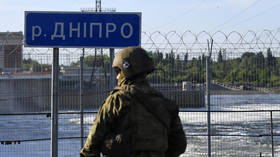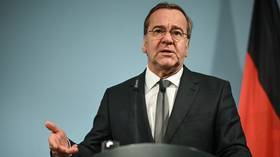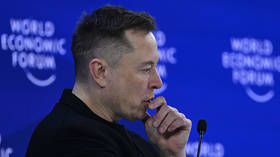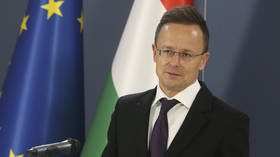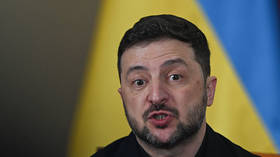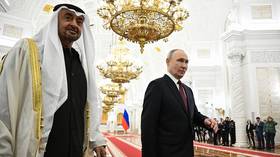Ukraine considered blowing up key dam – ex-commander
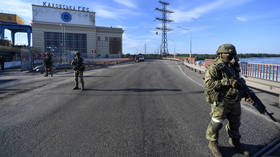
Ukrainian forces considered blowing up a major hydroelectric dam spanning the Dnieper River in Russia’s Kherson Region to paralyze Moscow’s forces who were defending the city of Kherson, the Washington Post reported on Thursday, citing a former Ukrainian commander.
The revelation comes despite Kiev’s warnings that the destruction of the facility would be a “large-scale disaster.”
Speaking to the paper, Major General Andrey Kovalchuk, a former head of Ukraine’s Operational Command South, described Kiev’s attempts to push back the Russian forces that had been stationed on the right bank of the Dnieper by cutting off their supply routes. To this end, Ukraine repeatedly shelled several crossings, using US-made HIMARS missiles, Kovalchuk has claimed.
He also reportedly considered flooding the river by attacking the Kakhovka hydropower plant. The general claimed, as reported by the Post, that Kiev’s forces “even conducted a test strike with a HIMARS launcher on one of the floodgates.” The purpose of the ‘experiment’ was to “see if the Dnieper’s water could be raised enough to stymie Russian crossings but not flood nearby villages.”
The ex-commander described the test as “a success,” but decided to resort to such an attack only if there were no other options remaining.
Russian forces ended up withdrawing from Kherson behind the Dnieper River in early November. At the time, Defense Minister Sergey Shoigu explained that Ukraine’s recurring attacks on the Kakhovka hydroelectric dam posed a serious risk to both the military and civilians. Had attempts to blow up the dam been successful, “large areas” could have flooded and the troops there could have been cut off from the rest of the Russian forces.
In late October, Moscow appealed to the UN to prevent Ukraine from destroying the dam. This “terrible provocation” could result in thousands of civilians dead, Russia said at the time.
The same month, Ukrainian President Vladimir Zelensky claimed that Moscow had allegedly planted bombs in the dam. He claimed at the time that “blowing up the dam would mean a large-scale disaster.”
